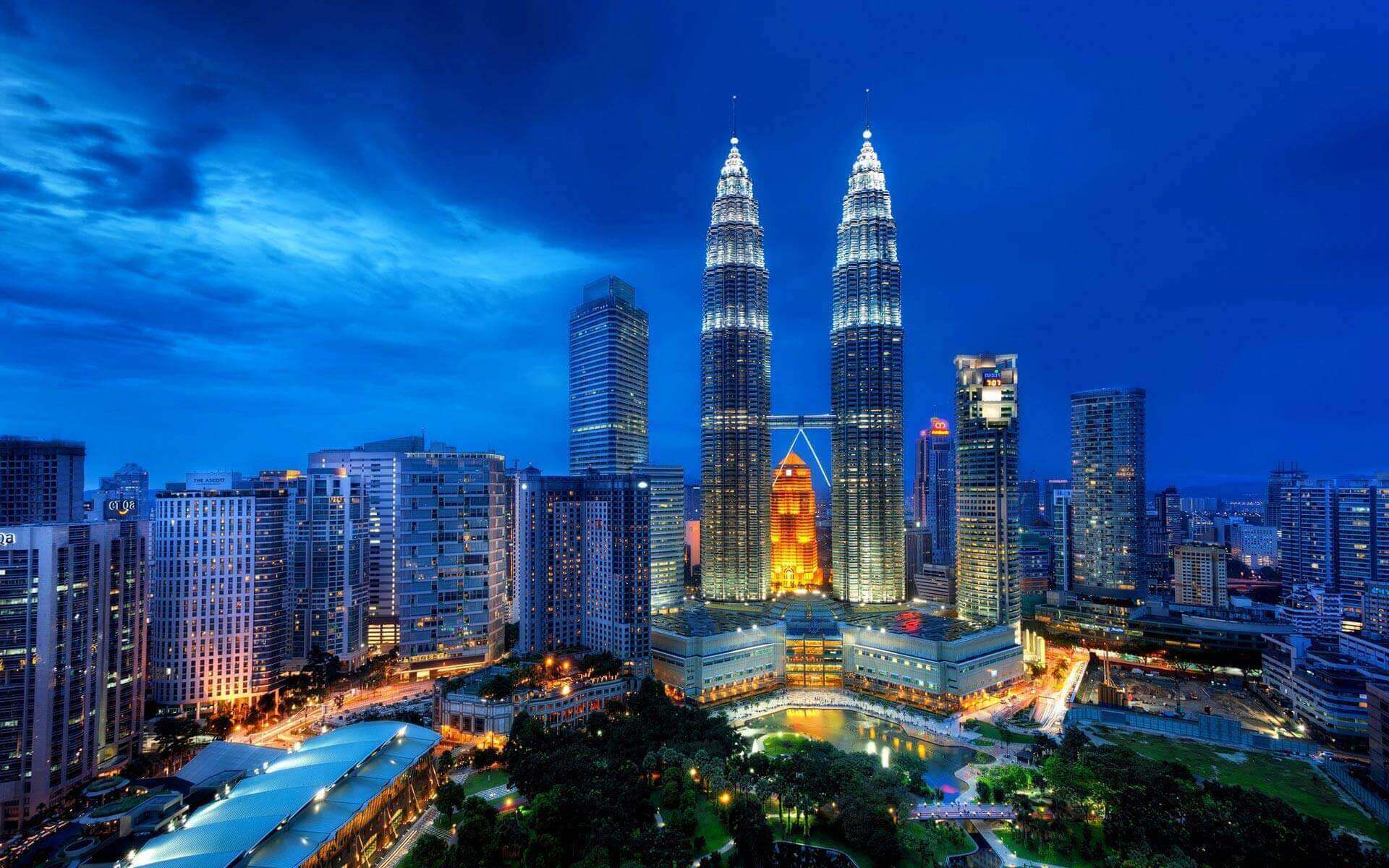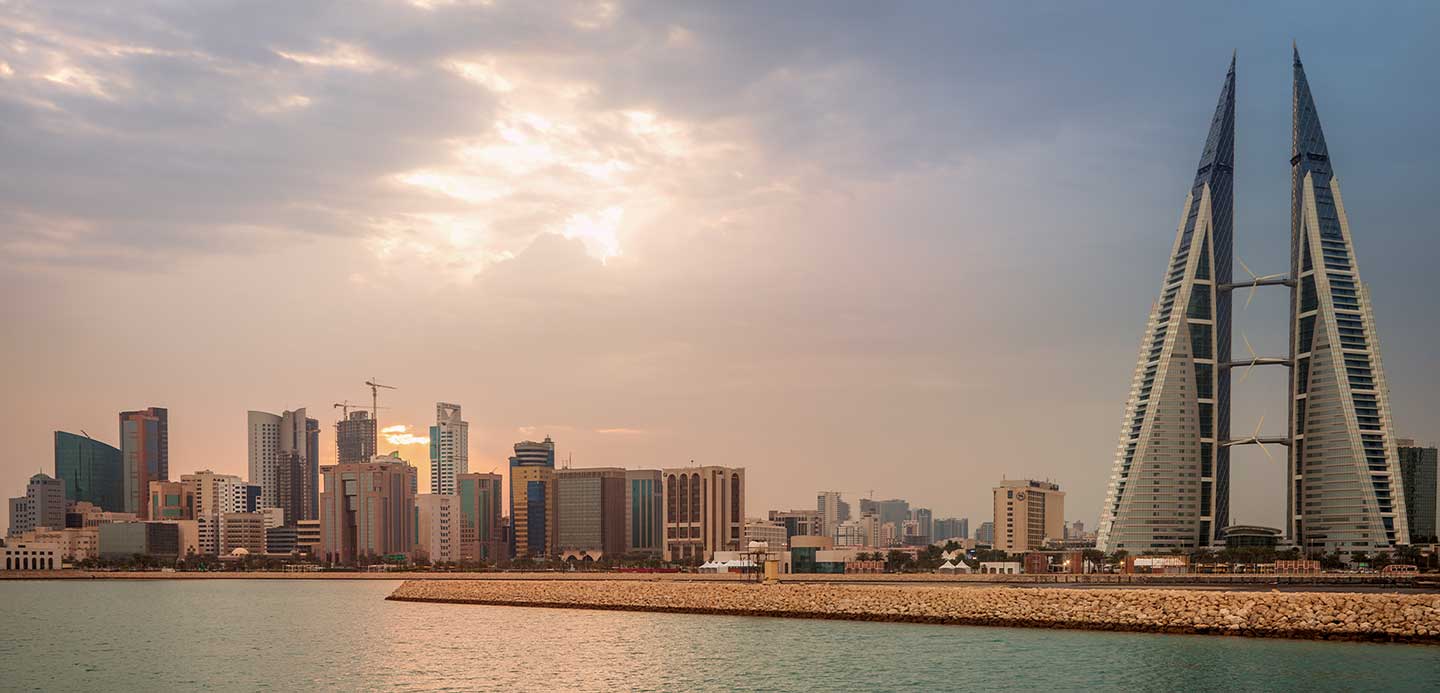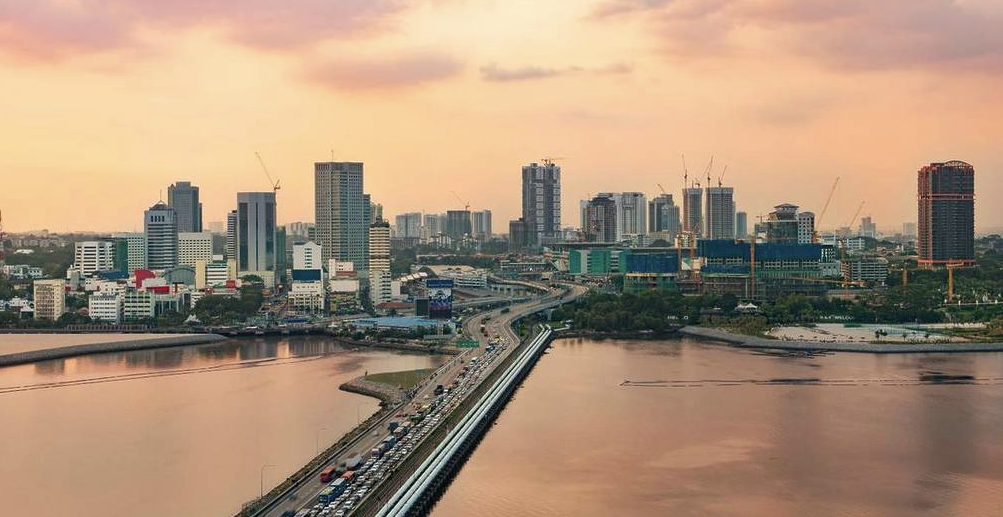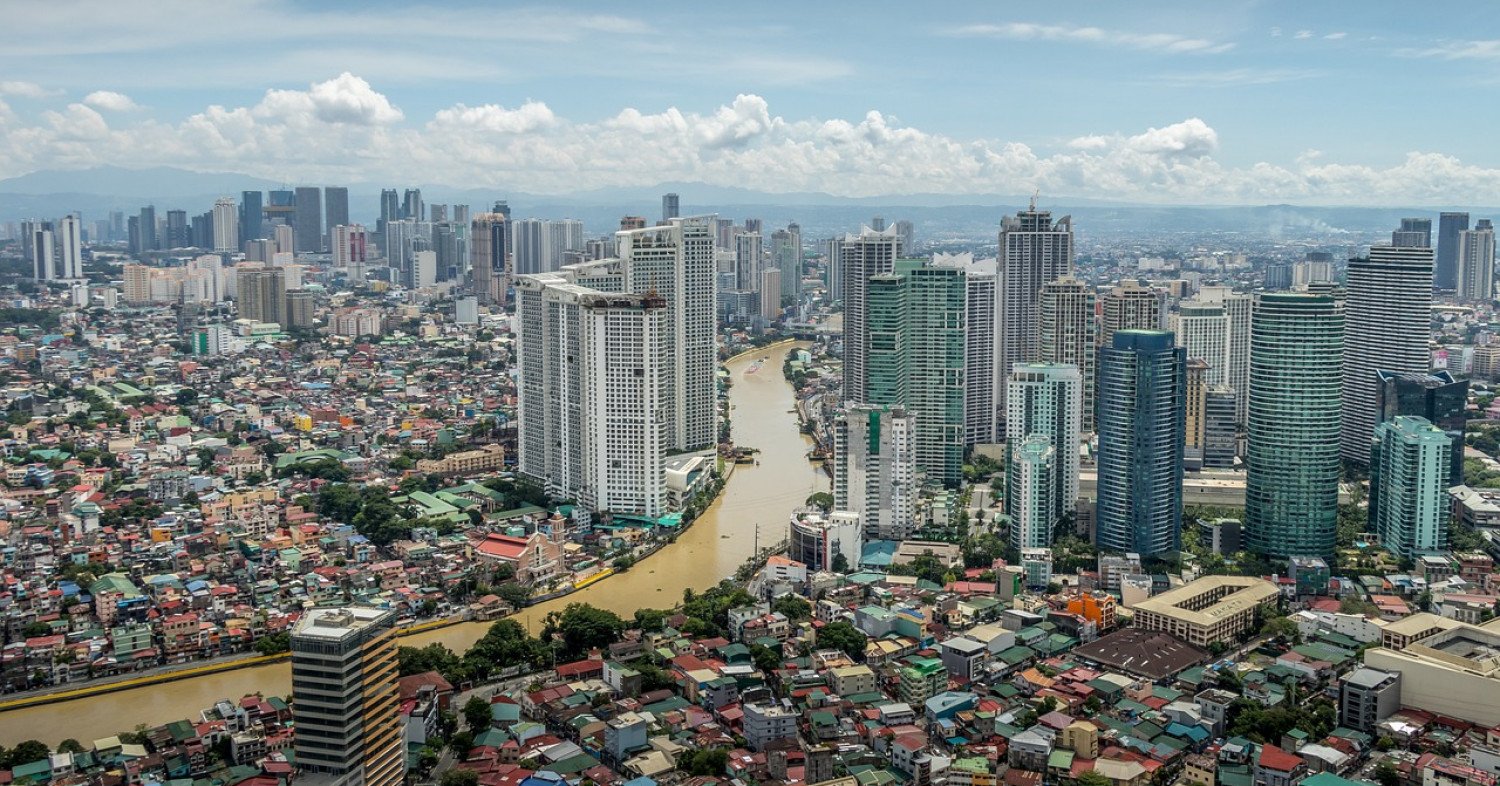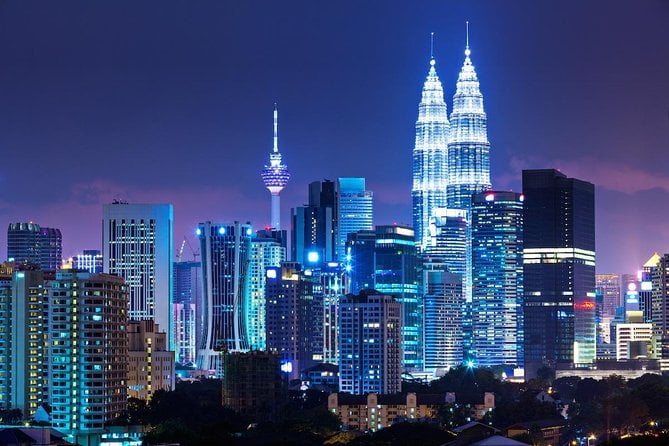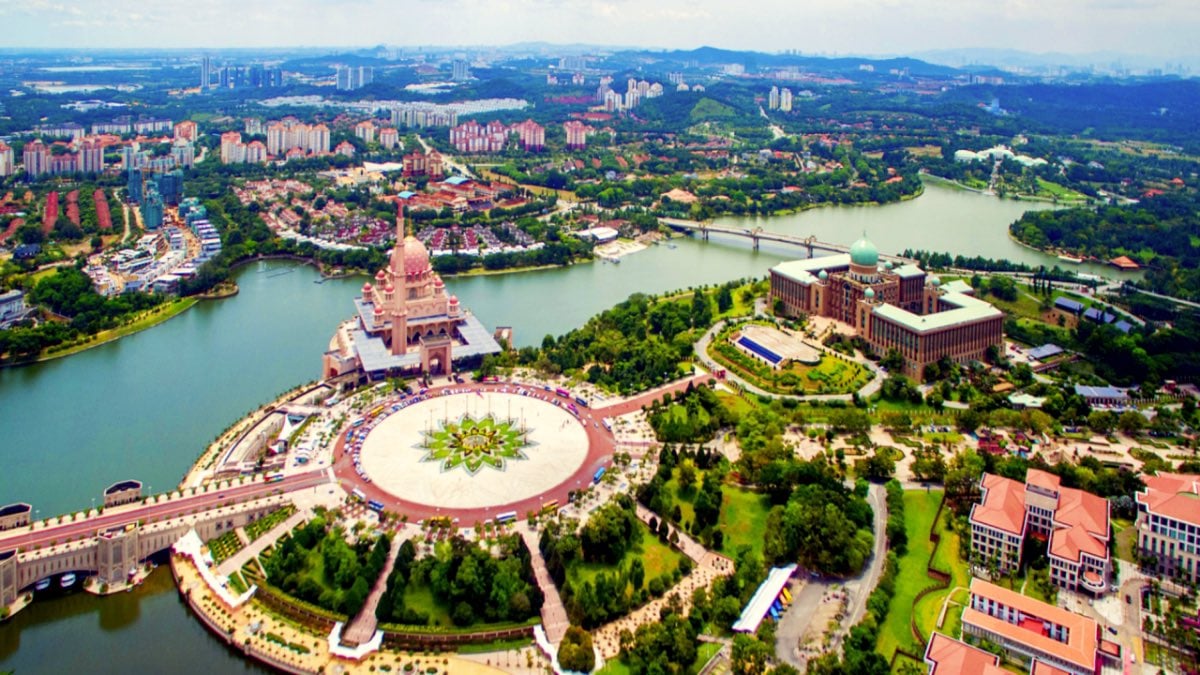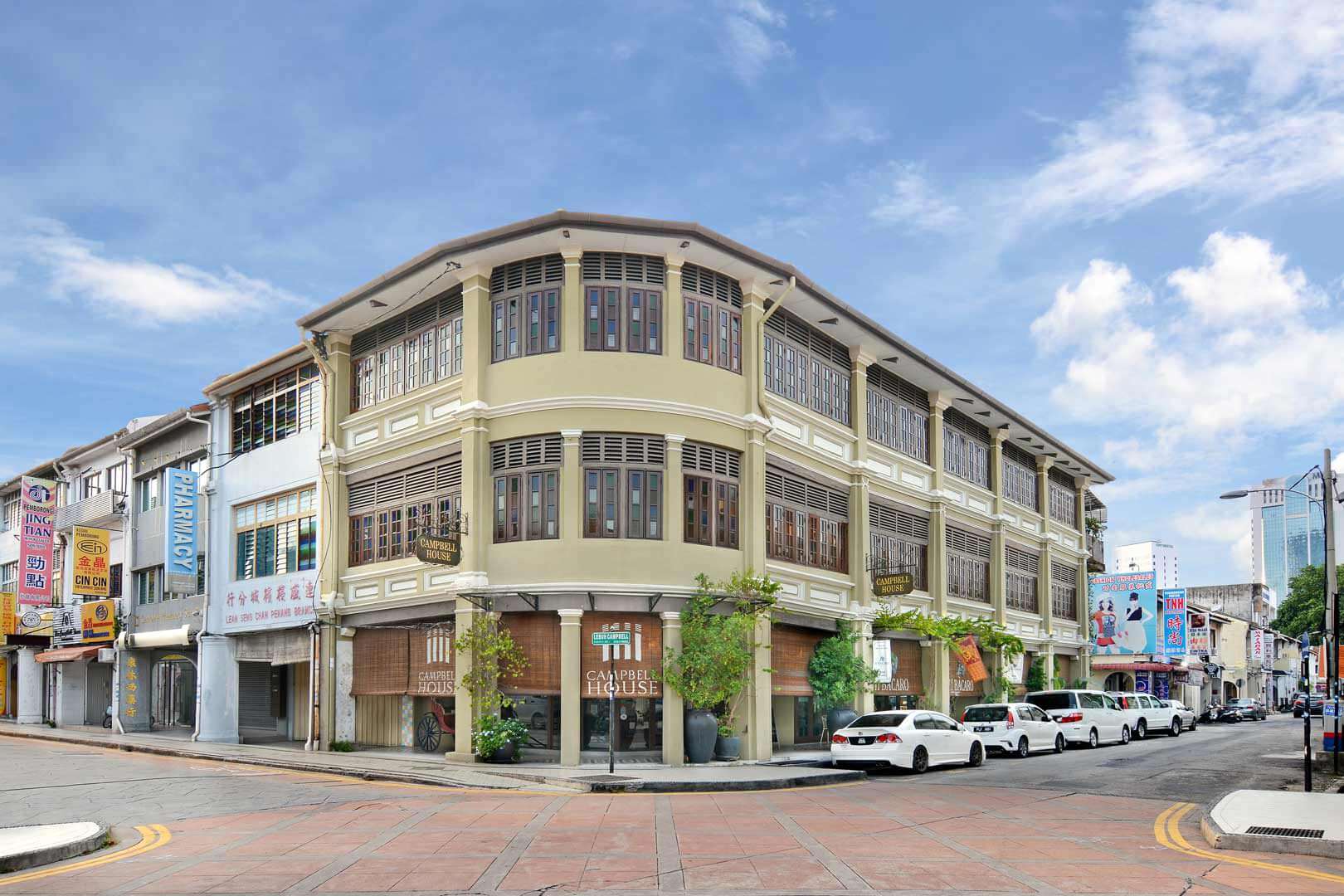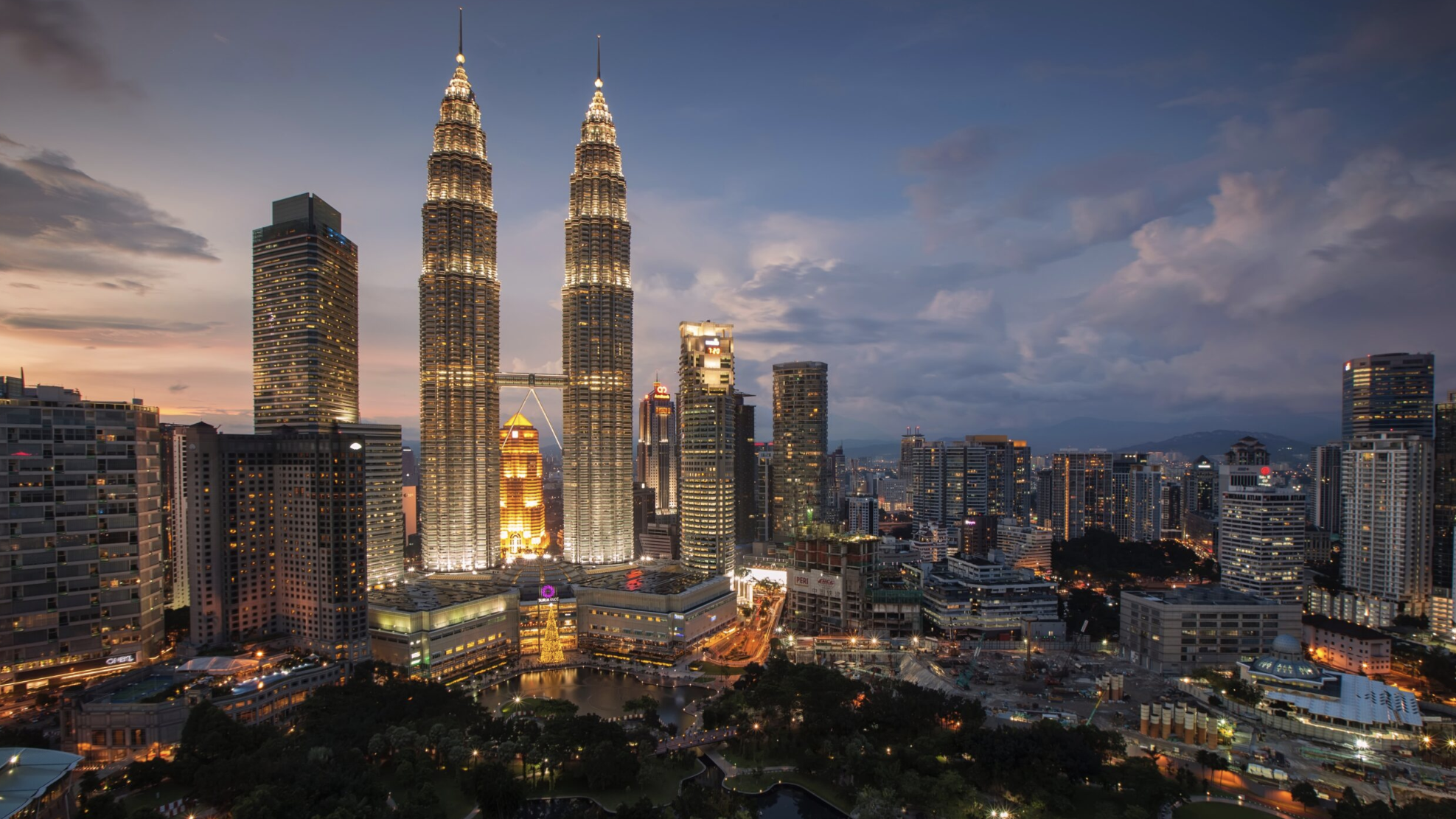While it generally stands in the shadow of neighboring countries, foreigners are now choosing to invest in Malaysia more than ever.
The country split into two parts geographically, with Peninsular Malaysia located just south of Thailand and East Malaysia located on the island of Borneo, separated from Peninsular Malaysia by the South China Sea.
Malaysia’s close proximity to Singapore just south of the peninsula has naturally benefited the nation’s economic growth. In fact, the Malaysian government plans to become a developed economy before the year 2030.
There’s a good chance that they will achieve this goal. Malaysia is already the third richest nation in ASEAN and it enjoys a healthy trade surplus, a strategic location along the Strait of Malacca, a growing population, and a rising middle class.
If you’re primarily interested in Malaysia’s real estate market, click above to read our full guide about buying property in Malaysia.
Malaysia is home to one of the most diverse ethnic groups in Asia with prominent Chinese, Indian, and Malay populations. The main religion is Islam with about 60% of people identifying as Muslim, although freedom of religion is protected.
Thanks to its colonial history, English is widely spoken – especially in larger cities like Kuala Lumpur and Penang.
Over time, these factors have combined to create a welcoming environment for more and more foreigners and expats who have begun to invest in Malaysia.
Malaysia is Open to Foreign Investment
Several factors help make Malaysia a unique investment destination. Yet most notable is the ability to easily own freehold land and houses as a foreign buyer.
Nearby countries in Asia, including Thailand and the Philippines, only permit foreign ownership of condominium units. Land and houses are absolutely off-limits unless you’re a local citizen.
Fortunately, Malaysia isn’t like its neighbors and remains significantly more open to foreign real estate ownership.
You’re allowed to own houses, villas, townhomes and similar types of landed property in Malaysia on a freehold basis. Even if you’re a non-resident.
Starting a company in Malaysia is equally simple. Foreigners can own 100% of shares in a locally incorporated business in the vast majority of cases. Once again, this isn’t the case in many other Asian countries.
Buying stocks in Malaysia is possible by opening a brokerage account in a nearby financial hub such as Singapore. You must be a resident or citizen of Malaysia to trade stocks here directly.
Cities and Neighborhoods in Malaysia
Malaysia is divided into 13 states and three federal territories. By far, the capital region of Kuala Lumpur is the most popular place to invest.
With a population of 7.2 million, Kuala Lumpur is one of the most diverse and international cities in all of Asia.
However, when choosing where to invest in Malaysia, consider that there are also many other midsize cities such as Penang, Johor Bahru and Kuching that are also popular.
Kuala Lumpur, or KL as it is often called, is one of the most important cities in the world for Islamic banking and has one of the largest oil and gas industries in Southeast Asia.
Tourists and investors from all over the world visit the city and Indians, Malays, Chinese, and westerners have all come to call it home. Expats typically buy real estate in KL City Centre (KLCC) or KL Sentral.
KLCC hosts megamalls, condos, office buildings, hotels, and the impressive Petronas Twin Towers.
Because of its ideal central location and high level of development, KLCC is one of the most sought-after (and expensive) residential neighborhoods in Kuala Lumpur. It is a great place to connect with other expats and there is always something to do.
Property prices will continue to rise in KLCC, making it a good place for investment. Regardless, you can find lower prices by moving farther from the city center. You’ll also get away from congestion and noise inherent in such a busy area of the city.
One such neighborhood is KL Sentral, which is a master-planned business district. It allows convenient access to elsewhere in Malaysia via the central train station, as well as the airport rail link that takes you to both of Kuala Lumpur’s main airports.
Real estate prices are lower in KL Sentral, but you will still find an abundance of hotels, condos, and commercial office buildings.
Plus, thanks to its proximity to the airport, this is another location that attracts numerous expats, making it easier for you to connect with peers. You’ll still deal with the noise of construction and a very active public transit though.
If you’re more interested in the suburban lifestyle, Damansara, Bangsar, and Mont Kiara are all about a 15 minute drive from the city center.
The 3 neighborhoods mentioned above are all equally popular with the expat community due to their good international schools, western amenities, low crime rates, restaurants, and relative affluence.
Likewise, these family-friendly areas are noticeably more affordable (and quieter!) than KLCC and KL Sentral.
For those looking for a lively nightlife, a younger expat population, and easy transportation, it’s best to look elsewhere. But for families who want quiet, safety, and quick access to the city, these suburbs fit the bill.
The last neighborhood worth mentioning is Petaling Jaya. Property prices are much lower there, making it an ideal location for those needing a larger home.
Generally speaking, KL suburbs still have plenty of malls, restaurants, international companies, and even theme parks – even if they’re quite far from the city center and spread out.
To learn more about these locations, be sure to check out our article on how to buy a condo in Kuala Lumpur.
Moving outside of Kuala Lumpur, you can also find large expat communities in the state of Penang, especially in popular tourist areas like Georgetown that offer a beachfront atmosphere.
Gurney Drive in Georgetown – locally known as “Millionaire’s Row” – is lined with large malls and oceanfront condos. You can discover more investment locations in this popular region of Malaysia in our article on how to buy a condo in Penang.
And you can learn more about the upcoming megacity of Johor Bahru, located just across the strait from Singapore, as well as promising investment locations like Kota Kinabalu and Kuching in our ultimate guide to investing in Malaysian property.
How to Start a Company in Malaysia
It’s rather simple to form a company here. In fact, Malaysia ranks among the easiest places in Asia to start a business. Foreigners are actively encouraged to invest here.
There are five types of companies in Malaysia. Namely, these are Limited Liability Partnership (LLP), Partnership, Private Limited Company, Public Limited Company, and sole proprietorship.
Out of all those, the Private Limited Company Structure (Sendirian Berhad) is the most commonly used structure in Malaysia.
Another option is to incorporate in Labuan, an island located off the coast of Borneo in East Malaysia.
Labuan is a top Asian tax haven, though not well known. Incorporating in Labuan rather than incorporation with a Sendirian Berhad company in Malaysia comes with many tax benefits and fewer industry restrictions.
You can set up a Labuan company with only one director and one shareholder, both of which can be foreigners.
Holding companies incorporated in Labuan enjoy zero taxes on all earnings sourced outside of Malaysia while businesses that trade with the public are subject to a minimal flat rate of 3%.
With that said, a Labuan company is not the right fit for everyone. If you are looking to incorporate in mainland Malaysia, you can use the detailed steps for incorporating using a Sendirian Berhad company shown below:
– Register an account on the My Company ID Portal.
– Validate your account and activate it at a Companies Commission of Malaysia (SSM) center.
– Provide required directors’ and company shareholders’ information.
– Submit your finalized business application and pay registration fees.
You might go through additional steps and requirements depending on the specific sector your business falls under. That’s because some industries in Malaysia come with certain restrictions.
Global investors are encouraged to invest in specific industries, including education, banking, and tourism.
Corporate income tax in Malaysia is 24% but varies depending on the industry. Withholding tax is 10% and interest is taxed at 15%. Capital gains tax ranges from 0% to 30%.
Fortunately, there are generous tax incentives for SMEs, manufacturers, and encouraged industry companies in Malaysia. Any business with an income of RM2.5 million or less annually is classified as a small or medium enterprise.
These small and medium enterprises are taxed 20% on the first RM500,000 and 24% on all income after that mark. SMEs don’t have to pay taxes for the first five years after they’re formed.
There are plenty of options for where you can set up your Malaysian company. First tier cities in Malaysia, such as Kuala Lumpur, Penang, and Johor Bahru, have greater competition and higher business costs.
Trading Stocks in Malaysia
Malaysia’s financial markets have been developing since the 1930s. The Malayan Stock Exchange was established in 1960.
Today, the Bursa Malaysia is the only stock exchange in Malaysia and is the third biggest stock exchange in Southeast Asia with a market capitalization of US$7 billion.
The Bursa Malaysia is a fully integrated exchange with more than 1,000 publicly listed firms as well as REITs, ETFs, bonds, derivatives, equities, indices, Islamic Markets, the Labuan International Financial Exchange, and other securities.
However, not anyone can invest directly in the Bursa Malaysia. Buying stocks in Malaysia as a foreigner is difficult, and in fact, you must be a Malaysian resident to open a bank or brokerage account in the country.
If you aren’t a resident, you can still invest in Malaysian companies through index funds and Malaysian stock listings in the US and other international markets.
Most international brokers offer access to Malaysia exposure ETFs. Individual stocks are also listed on the US stock markets.
If you want something more local with better fees, you can set up a brokerage account in Hong Kong or Singapore.
A brokerage account in Asia will give you access to trading stocks in Malaysia and other markets throughout the region, including Thailand, Indonesia, Vietnam, and the Philippines. You can learn more about how to buy stocks in Asia here.
Malaysia’s Currency: The Ringgit
The official currency is the Malaysian Ringgit (MYR). As of early 2025, one US dollar equals about 4.4 Malaysian ringgit.
The value of the ringgit rose and fell throughout the later part of the 1990s, losing about half of its value by the later part of that decade. Capital flight stopped when the ringgit was designated as non-tradable outside of Malaysia.
Since then, the ringgit has been a floating currency. It has generally appreciated in value since its USD peg ended.
While we warned against investing in the ringgit several years ago before it hit rock bottom, it now has potential to rise again in value. We currently rate the currency a buy and list it among Asia’s safest currencies.
Malaysia’s ringgit has notably fallen over the past five years, despite higher oil prices globally, and has continued underperforming major world currencies.
The one catch is that it is illegal to hold Malaysian ringgit outside of Malaysia, so you will need to have a Malaysian financial account before you can invest.
Doing Business in Malaysia
Malaysia saw drastic economic growth as the country grew its industry and exports. It now ranks as one of the top export countries in Asia and produces many different commodities.
The top exports in Malaysia include aluminum, coconut oil, palm oil, and refined and crude petroleum.
Malaysia’s major oil reserves are located in offshore fields in the Sabah Basin, Malay Basin, and Sarawak Basin. Petronas is the national oil company in Malaysia and is the 69th biggest company in the world with assets over US$169 billion.
Interestingly, 90% of all palm oil production in the world takes place in Malaysia and Indonesia. Palm oil is one of the most important products that come from the agriculture industry in Malaysia.
Other top industries in Malaysia include electrical and electronic components, automotive, construction, defense, finance and banking, tourism, and medical tourism.
In fact, Malaysia has some of the best healthcare in the world with its advanced yet affordable medical technology and hospitals. Thousands of foreigners travel to Malaysia to receive medical care each year.
For many decades, the Malaysian economy struggled with diversification as it relied heavily on the oil industry.
Regardless of Malaysia’s difficulties, it has successfully diversified away from commodity exports and now has a strong service industry, including finance, business services, high-tech manufacturing, and other knowledge-based industries.
Malaysia is the third richest nation in Southeast Asia with the sixth largest economy. The rising middle class enjoy a high standard of living almost on par with a developed country.
And while GDP growth has been shrinking rapidly in recent years, Malaysia’s economy still performs better than some emerging markets.
Malaysia is also on the winning end of capital flight from the Middle East, which combined with its oil reserves, strategic location, and business-friendly policies, has helped Malaysia gained more interests from international investors.
Cryptocurrency in Malaysia
It’s legal to use cryptocurrency in Malaysia, but it still isn’t widely used among locals as of 2025.
Nonetheless, crypto is beginning to gain popularity here. Three Recognized Market Operators (RMOs) have been approved and are now on the list of registered digital asset exchanges.
In Malaysia, cryptocurrencies are considered securities and are regulated by the Securities Commission of Malaysia.
The government is generally supportive of digital assets – a good sign for the future of bitcoin, ethereum, and other types of crypto in Malaysia.
Buying Real Estate in Malaysia
Malaysia is one of the only countries in Southeast Asia where foreigners are allowed to buy and own freehold land.
Indeed, Malaysia is arguably the easiest place on the whole content for property ownership.
In other Southeast Asian countries, foreigners may be able to purchase the building, but not the land the building resides on. For example, in Thailand, foreigners can only own freehold condo units.
Because of this, non-citizens can only buy real estate in cities where such condos are built. Foreign investment options are thus limited in many Asian real estate markets.
Thankfully, foreign property investors in Malaysia aren’t nearly as limited compared to elsewhere in the region.
Not only can foreigners invest in a variety of different buildings, townhomes, condos, and homes in cities and towns throughout the country but they can own the land on which those properties reside.
That doesn’t mean there aren’t any restrictions at all. While there are fewer restrictions for foreign investors in Malaysia, they still cannot own land in areas designated as “Bumiputra only” – “Bumiputra” meaning ethnic, Muslim Malays.
Foreign property buyers also face a minimum purchase requirement when investing in Malaysia. This is to keep non-citizens from owning low-cost properties and driving up home values.
The minimum purchase requirement as a foreigner varies based on the specific region you’re buying property in. Prices are RM1 million in most areas and RM2 million in Selangor.
If you choose to invest in rental properties in Malaysia, you will be subject to a flat tax of 25% as a non-resident (in comparison to the 20% rate applied to Malay residents).
You should additionally be prepared to pay the 30% real property gains tax when selling a property within five years of purchase, or 10% if sold after that point.
Some great cities to consider for investing in property include Kuala Lumpur, Johor Bahru, Kota Kinabalu, and Kuching. If you want long-term appreciation, you should consider the island of Penang due to land scarcity.
Overall, property prices are low in Malaysia. There is less attention on the Malaysian real estate market from international investors and there is a current oversupply of condos in places like Kuala Lumpur.
This is appealing because it means you can get in at low prices but it also contributes to low rental yields, which are currently around 3%.
If you are looking for high rental yields or currency appreciation rates, you would do better to look elsewhere in Southeast Asia. Yet if you’re seeking long-term appreciation, this may be the perfect real estate play for you.
Malaysia’s real estate market is currently undervalued, hosting some of the cheapest property in Southeast Asia despite ranking as one of the wealthiest countries in the region.
As Malaysia’s population grows (and it’s bound to do so in the coming decades), anyone who got in while the prices were low will benefit immensely over the long term.
Even if you’re not interested in the investment aspect, there are other benefits to buying real estate in Malaysia.
For instance, purchasing property there can lead to receiving a long-term visa through the Malaysia My Second Home (MM2H) visa program.
With proper planning, you can use this residence to enjoy living tax-free in Malaysia.
Best of all, it remains easy to invest in Malaysia property. English is widely spoken, the government provides a secure and well-documented titling system, and there are many online real estate portals that you can use to look for property.
You can read more about buying property in Malaysia in our full guide here.
Venture Capital in Malaysia
Malaysia is a great hub for startups in Southeast Asia. Today, there are more than 10,000 large private businesses in Malaysia and an even greater number of small and medium enterprises.
iFlix is one of the most prominent startups in Malaysia. As of 2025, iFlix claims over 25 million active users.
Other successful Malaysian startup companies include:
- Carsome
- Dahmakan
- iMoney Group
- Jirnexu
- Kaodim
- Storehub
This isn’t a complete list by any means. Malaysia is home to well-over a hundred venture capital groups as of 2025.
Petronas Corporate Venture Capital is one of Malaysia’s largest such firms, investing in “visionary entrepreneurs with breakthrough technologies”.
Should You Invest in Malaysia?
Malaysia isn’t the most obvious investment choice in Asia. Nor is it the most profitable emerging market by any means.
If you’re seeking immediate growth and high returns, frontier markets such as Cambodia and the Philippines generally offer better investment when compared to Malaysia.
But if you want to own land in a relatively developed nation, Malaysia may be the perfect place for you.
Malaysia’s economy has steadily progressed over the past few decades, and that growth is likely to continue thanks to its strong demographics and open business policies.
Whether you trade stocks or buy real estate, you’ll find that Malaysia is truly one of the easiest places to invest in Asia as a foreigner.
Investing in Malaysia: FAQs
Can Foreigners Own Property in Malaysia?
As a foreigner, you can buy practically any type of real estate in Malaysia on a freehold basis.
In fact, it's one of the easiest places in the region to buy property. Foreigners aren't restricted from owning land in Malaysia either!
How Can I Buy Malaysian Stocks?
You can't trade stocks in Malaysia directly unless you live here. That's because brokers in Malaysia are only able to open accounts for residents.
As a foreigner, it's possible to trade stocks on the Bursa Malaysia through a brokerage based in one of Asia's main financial hubs though.
Several brokerage firms in Singapore and Hong Kong support trading stocks in Malaysia.
Is Cryptocurrency Legal in Malaysia?
There aren't any laws in Malaysia that forbid the usage of crypto. You can freely trade bitcoin, ether, and other coins in Malaysia.
While crpyto isn't officially legal tender in Malaysia, that's not the same thing as being illegal. Crypto assets aren't regulated by the government though.
Are Foreigners Able to Buy Land in Malaysia?
Malaysia is one of few countries in Asia where foreigners can own houses and other types of landed property on a freehold basis.
The only types of property that foreigners can't own in Malaysia are agricultural land, budget housing, and buildings with cultural significance.
Can Foreigners Start a Business in Malaysia?
Yes, foreigners can own up to 100% of the shares of almost any type of company in Malaysia.

Malaysia
Capital
Kuala Lumpur
Currency
Malaysian Ringgit
Population (2025)
35,977,838
GDP (2025)
US$488.7 billion
GDP Per Capita
US$14,423
GDP Growth (5 Year Avg.)
4.44%
Skip the Next Western Recession
Learn the best places to invest – and where to avoid – by downloading our free Investment Cheat Sheet.
READ MORE ABOUT MALAYSIA
READY TO INVEST IN THE WORLD’S FASTEST GROWING COUNTRIES?
Join 50,000+ monthly readers. Discover property, stocks, and other investments that will drive global growth in the 21st century.

